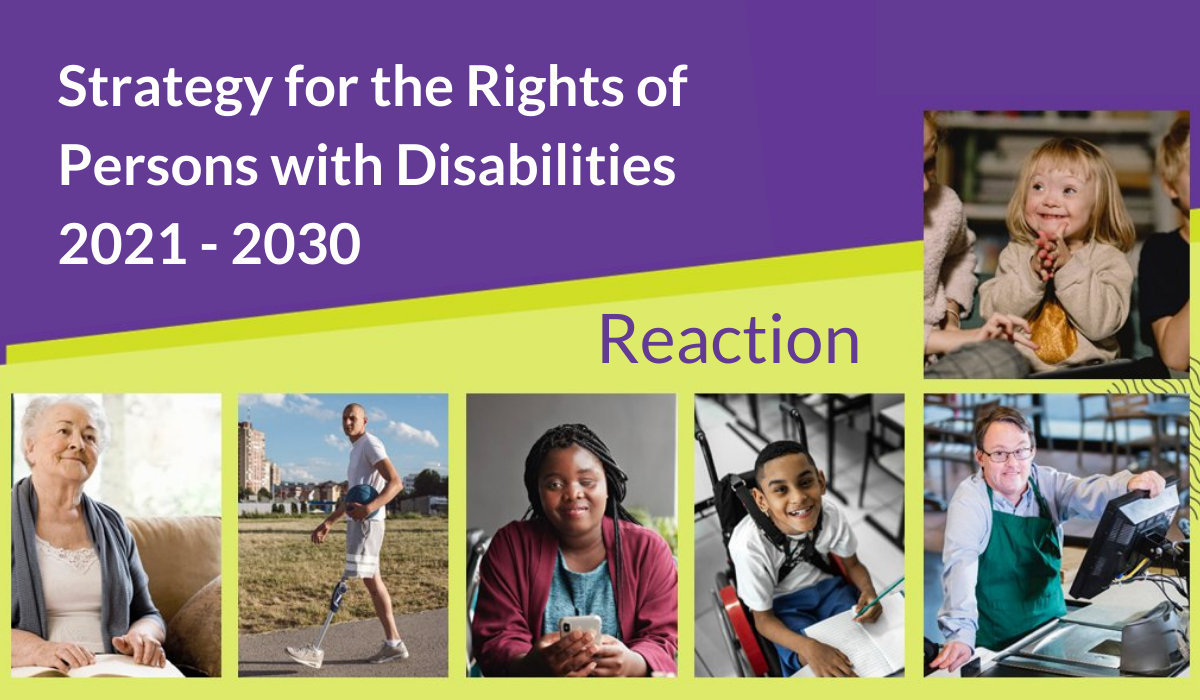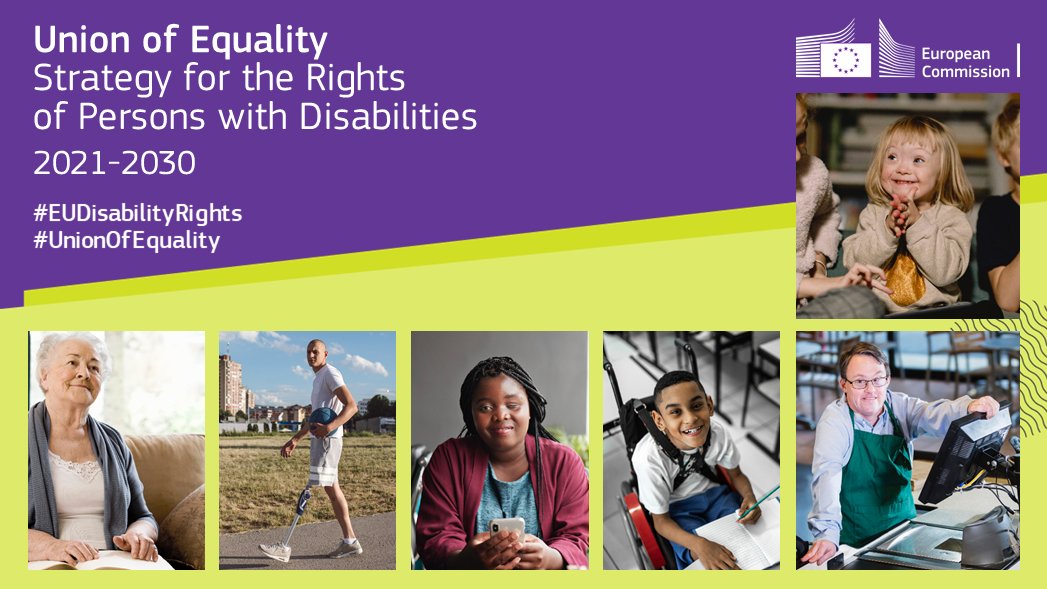EU Disability Rights Strategy 2021-2030: a new hope for persons with psychosocial disabilities


Image: European Commission
After an extensive preparation process, including several rounds of discussion with civil society stakeholders, the European Commission launched the Disability Rights Strategy titled “Union of Equality – Strategy for the Rights of Persons with Disabilities 2021-2030” on 3 March 2021. Following the EU’s ratification of the United Nations Convention on the Rights of Persons with Disabilities (UNCRPD), the Strategy formulates central political commitments, objectives, and initiatives of the EU until 2030.
Building on the three pillars of (1) EU rights on an equal basis with others, (2) independent living and autonomy, and (3) freedom from discrimination and equality of opportunities, this Strategy bears several promising initiatives for many persons with disabilities, including psychosocial disabilities, in the European Union. Next to a flagship initiative, AccessibleEU aiming to increase coherence in accessibility policies, the introduction of the European Disability Card will allow for the recognition of a disability status across the European Union. Another important goal is to monitor EU funding mechanisms and encourage EU member states to “implement good practices of deinstitutionalisation in the area of mental health and in respect of all persons with disabilities”. Finally, it will work towards full electoral participation and accessibility of European elections.
Implementation of the Strategy will be guided by the creation of a Disability Platform, bringing together the EU, the Member States, National Focal Points, and Civil Society. A positive element is the Commission’s encouragement to all EU institutions and bodies to appoint disability coordinators. The rollout should be accompanied by a monitoring framework to be developed and published in 2021, new disability indicators by 2023, a mid-term report by 2024, and a data collection strategy.
Mental Health Europe (MHE) is especially delighted to see particular attention towards the rights of persons with psychosocial disabilities and persons with mental health problems. This follows the recommendations by the evaluation of the Strategy 2010-2020, outlining that previously some persons with disabilities were underrepresented, such as persons with psychosocial disabilities. The Strategy explicitly acknowledges the existence of legal barriers for persons with intellectual disabilities, psychosocial disabilities, or mental health problems “as they are often restricted in or deprived of their legal capacity”. MHE welcomes the Commission’s goal to provide guidance to the Member States on access to justice for persons with disabilities in the EU and develop measures to support the Member States in boosting the participation of persons with disabilities as professionals in the justice system and collect good practices on supported decision-making. Also, the Strategy encourages the Member States to support self-employment and entrepreneurship, including for persons with intellectual and psychosocial disabilities.
Finally, MHE is pleased to see the Commissions` commitment to supporting stakeholders to address the impact of the COVID-19 pandemic on European citizens’ mental health. “For all persons, including persons with psychosocial disabilities, this pandemic has been a challenging period while at the same time reminding us that we all have mental health. Together with other initiatives such as the EU4Health programme, the Strategy takes this opportunity to raise awareness on the importance of mental health for all EU citizens,” says Liuska Sanna, Acting Director of Mental Health Europe.
Mental Health Europe calls upon all EU member states to support the EU in implementing this Strategy as a land-mark policy instrument to protect and promote the rights of persons with disabilities, moving towards the realisation of the UNCRPD.
Learn more about the new EU Disability Rights Strategy
More information:
- For easy-to-read version, CLICK HERE
- For Q&A, CLICK HERE
- Read the factsheet HERE
- Read news in easy-to-read HERE
Stay connected
Get our latest news, personal stories, research articles, and job opportunities.

